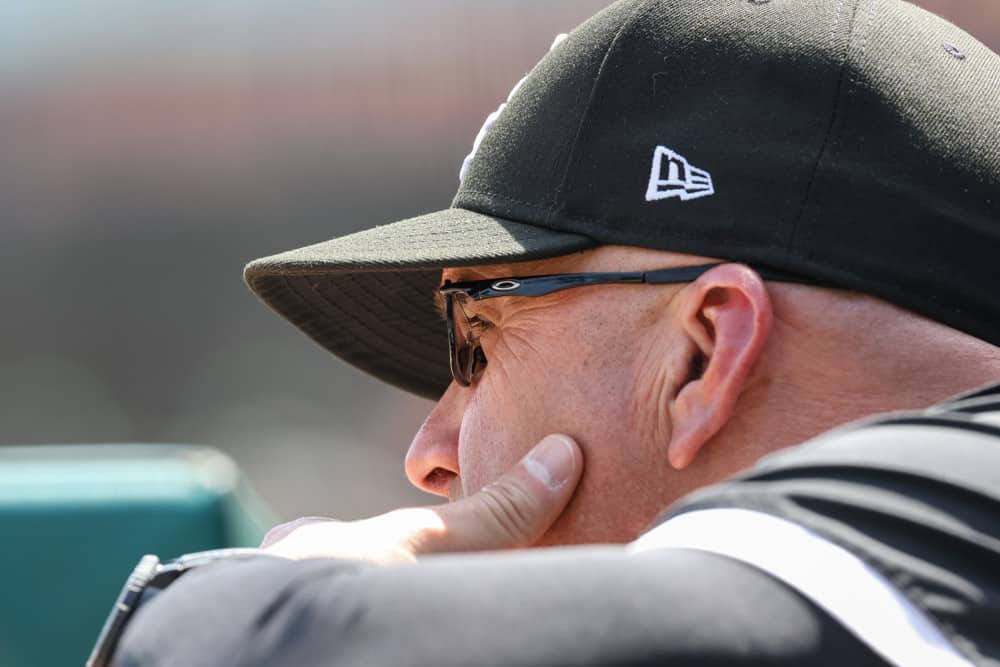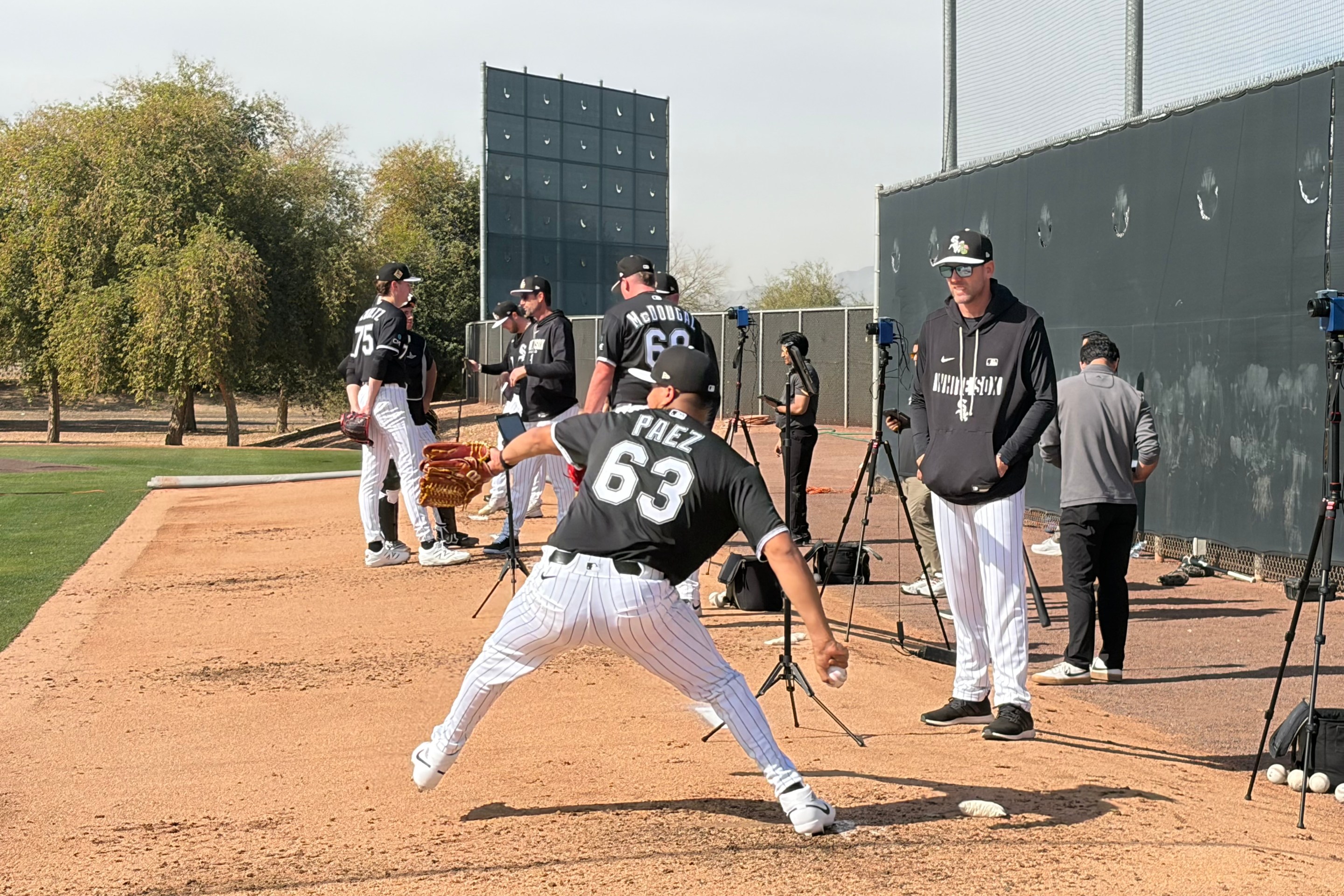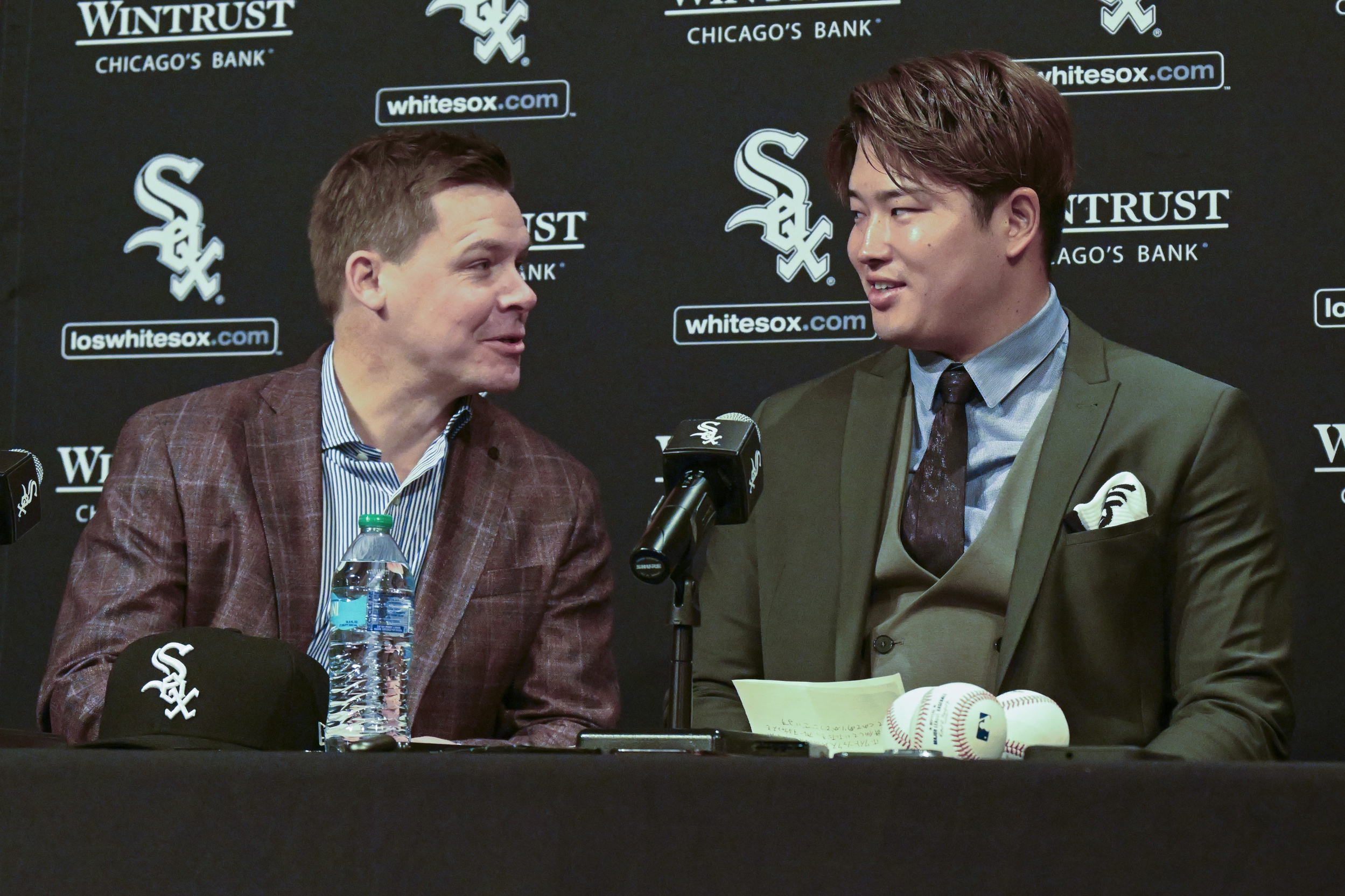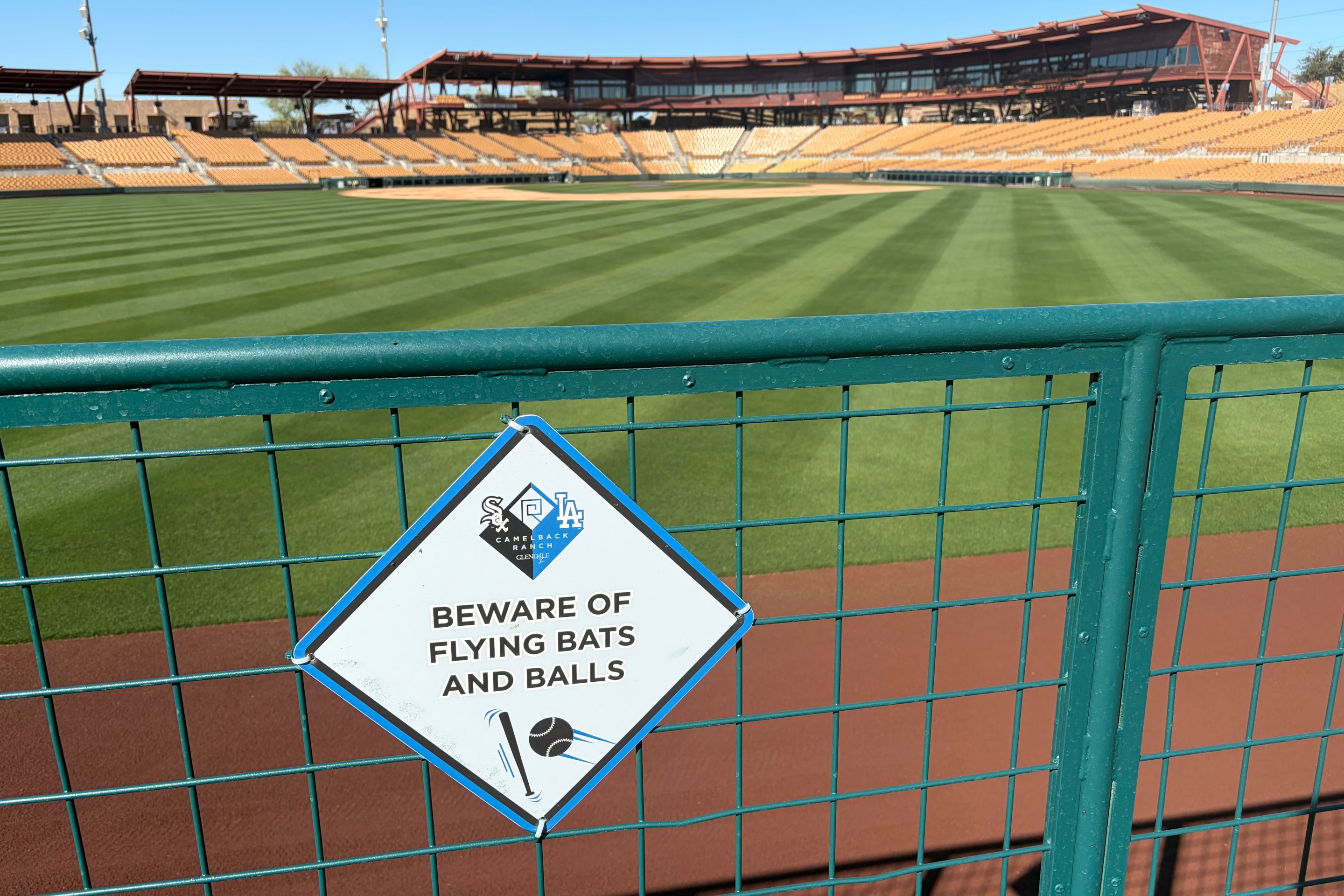Unless anti-charisma counts as a kind of charisma, there isn't any reason to think that Pedro Grifol is running a con. Still, the lack of White Sox action during the All-Star break has me going back to what Grifol said on Sunday, before the Sox fell to a season-worst 16 games under .500 to close out the first half of the season.
Scott Merkin tweeted the quote in two parts:
"I think the foundation is being set. We’ve got some work to do. But the foundation is in place. And we just gotta continue to really focus on it. I believe that’s a really big part of building a sustainable championship organization...
"Culture is a big part of it. It’s not quantifiable. A lot of people don’t believe in it. I’ve lived it. When you go to two World Series in a row and you see a clubhouse and you see an organization and you see culture in place. I just believe in culture."
Buying time by saying change is just around the corner and stressing the value of what you can't see is basically the plot to "The Music Man," isn't it? (Or "Marge vs. the Monorail," if you learned about Lyle Lanley before knowing who Harold Hill was?) Rick Hahn said that Grifol got the job in part by identifying what the Sox did wrong, which isn't too different from Hill announcing his presence in River City by warning the townsfolk about the dangers of a pool table.
Grifol is under contract, so he'll collect what he's owed barring some egregious breach. But if he had to earn his money week by week until the team or media exposed him, leaning heavily upon the invisible would probably be the way to do it.
Grifol came into town emphasizing culture ...
“They first have to understand what culture is,” Grifol said. “Someone recently described it perfectly to me. He said culture is what it looks like, what it acts like and what it feels like, right?
“What it feels like is you can’t wait to get to the clubhouse and perform. What it looks like is when you’re watching us from up there [in the stands], you want people to say, ‘These guys are together, these guys are fighting together, they’re playing to win every single night.’ And, obviously, what it acts like is these guys are professionals. They respect the game, they respect the fans, they respect what they do, and they really respect our team.”
... and he again waxed poetic at the start of spring training ...
“You don’t really describe culture,” Grifol said. “I shared this with some of the staff members at one of the meetings we had. You have to understand, really, what culture looks like. You go to a ballpark, you see a team and right away, you are like, ‘Damn, that team is together. That team is fighting together. That team works hard.’ That’s really what culture is.
“People from the outside look in and they are like, ‘I want to be a part of that team and with that organization.’ That’s what we have to think about. We respect the game. We work hard. We care for each other. We don’t have to hang out with each other off the field if we don’t want to. If you want to, great. If you don’t, you don’t have to. But on the field, we are one, we are together, we are fighting together.”
Now Grifol's saying the foundation for that culture is just about set, and just in time for the front office to ship out their most reliable veterans for whatever they can get at the trade deadline. This would be the moment where some skeptical citizen would look into where Grifol came from and notice that the Royals are 26-65, making them the North Haverbrook of Major League Baseball.
Grifol is no flimflammer, even if "Grifol" is close enough to "grift" that George Lucas would think the name lacked subtlety. He's not even wrong about culture in the abstract. He's just not right, either, because when it comes to measuring intangibles, the White Sox always forget about the order of operations.
It's an organizational issue, and it precedes Grifol by nearly a decade. Rick Hahn's first rebuild was rushed in 2015 by trading for Jeff "Captain of Attitude" Samardzija and signing Adam LaRoche, the latter of whom contributed to a fatal veteran presence overdose when Todd Frazier and Jimmy Rollins came along the following year.
The various explosions of 2016 understandably called culture into question, and Rick Renteria was tasked with improving it during his tenure. The quest for leadership quieted after the Sox signed their big free agents and won a division, but as the rebuild started foundering, they reopened the search. We've heard a little too much about it over the last couple years, whether worrying about José Abreu's departure or remarking on Elvis Andrus' outsized impact. In fact, the return of Andrus in February tripped those years-old alarms.
We can all agree that somebody like Andrus shouldn’t be that important to the 2023 White Sox, because their contention window was supposed to be at full speed, not on life support. We can definitely agree that Rick Hahn shouldn’t be selling Andrus’ leadership qualities like Andrus is tasked with babysitting a 100-loss team, because that calls into question everything the White Sox front office has been doing to prepare everybody else over the last several years.
Sure enough, Andrus isn't hitting, and whatever else he's bringing to the table isn't making a dent. In fact, he's committed a surprising number of rookie-like mistakes himself.
The failure of the first half is staggering, yet I wouldn't call it an outlier. It's within the bounds of what the White Sox always do. They routinely assemble a decent front line of players, and then skip right ahead to finishing touches like celebrity closers and veteran leaders, instead of evaluating whether they've amassed enough talent, or whether it functions as a cohesive roster. The Sox refuse to take the shortest path to improving the roster by paying premium players, so they're always left with a longer road, but they don't have the patience to actually see it through. The result is something that's either underbaked or underproofed, but whatever it is, it's underwhelming.
That makes Grifol is more of a symptom than a cause, even if he's technically in charge. Overhauling a coaching staff isn't simple, but it's faster and cheaper than trying to untangle a $190 million payroll. When it came to the players, the White Sox basically swapped out Abreu for Andrew Benintendi and hoped that on-field management could do the rest. Instead, the Sox immediately tanked, and Lance Lynn could only respond to A.J. Pierzynski's blunt questioning with roundabout references to "all the new concepts."
Looking back on the White Sox in April, it's fair to wonder if Grifol ran spring training via the Think System. It wouldn't look much different if he did, and it would've saved him a whole lot of time. But really, Grifol isn't a bagman. He's merely left holding the bag. That's an entirely different thing, even if the result is the same old song and dance.






